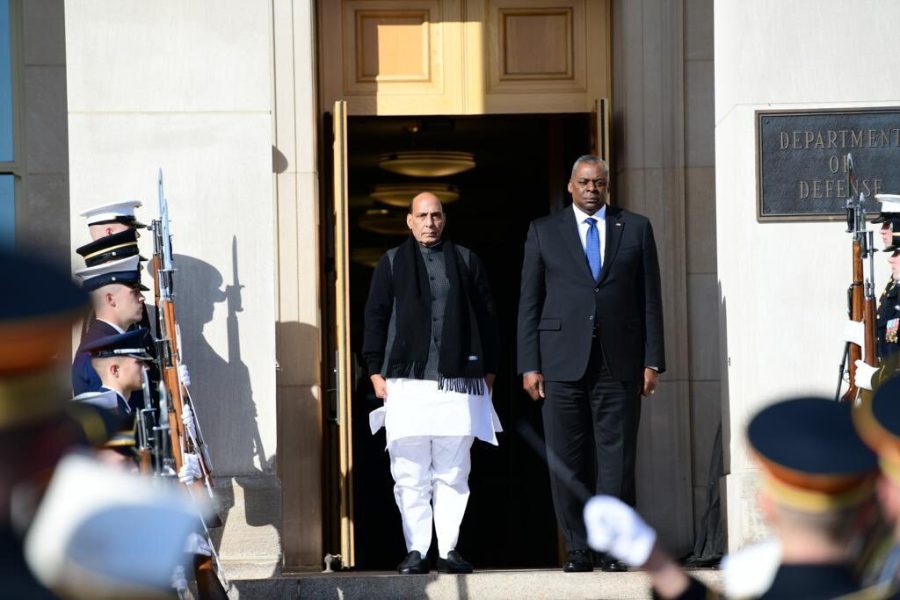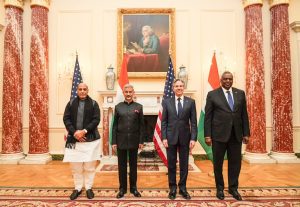
China ‘eroding’ Indo-Pacific security: US defense secretary

US Secretary of Defense Lloyd Austin told Defence Minister Rajnath Singh and External Affairs Minister S Jaishankar on Tuesday that China is “eroding the security” of the Indo-Pacific region with construction of “dual-use infrastructure along India’s border” and the US will “continue to stand alongside” India in its defence of “sovereign interest”.
Asked about “missed opportunities” between India and the US in the past that led to India’s dependence on Russia for defence supplies, Austin said: “Of course, I can’t say much about policy decisions that were made before my time… We will continue to work to strengthen what’s a very strong relationship, so that we don’t miss any opportunities going forward.”
Although the two countries differed on the issue of Russia and Ukraine, there was common interest with respect to China and strengthening of defence cooperation. This was evident in the remarks after the 2+2 meeting of foreign and defence ministers of India and the US in Washington, DC.
The two sides signed a ‘Space Situational Awareness’ arrangement that will support greater information sharing and cooperation in space, Austin said, in the presence of Secretary of State Antony Blinken, Singh and Jaishankar.

“We are working closely with India on a range of priorities to support India’s security and its role as a net security provider. It is a leader in the region and it actually exports security to the region, and we are grateful for that. Some of the things that we talked about are information sharing, deeper cooperation in space, in cyberspace, liaison exchanges, continuing to work together more frequently and in the exercises but also exercises of increasing complexity. So we are working with India on a number of things, and we think these things will add tremendous value to the region in terms of security,” he said.
Austin said China was seeking to “refashion the region and the international system more broadly in ways that serve its authoritarian interests”.
“Across the region, the People’s Republic of China is attempting to challenge and undermine the sovereignty of its neighbours. Beijing is eroding the security of the Indo-Pacific region from its construction of dual-use infrastructure along your border to its unlawful claims in the South China Sea, and we will continue to stand alongside you as you defend your sovereign interest.”
Bringing up Ukraine, he said: “Beijing is not alone in its efforts to undermine the security of its neighbours and to change the status quo by force. Russia’s invasion of Ukraine and the humanitarian devastation that it has created are blatant attempts to undermine the international order that is grounded in the rules and the principles that we share.
“We have made important commitments today that will drive technological innovation and cooperation in emerging defence domains, including space and cyberspace… We recently concluded an agreement to work together on air-launched unmanned aerial vehicles through our Defence Technology and Trade Initiative. And today we agreed to launch new supply chain cooperation measures that will let us more swiftly support each other’s priority defence requirements. India continues to acquire key US defence platforms, and that is forging important and new ties between our defence industrial bases.”
Singh emphasised India’s desire to have a “free, open, and inclusive rule-based order”.
“Our partnership is based on the Indo-Pacific, and we want to create peace and prosperity in the Indo-Pacific region. During the meeting, we also discussed our neighbours, and we tried to make sure that our assessment is also shared,” he said, in an oblique reference to China.


